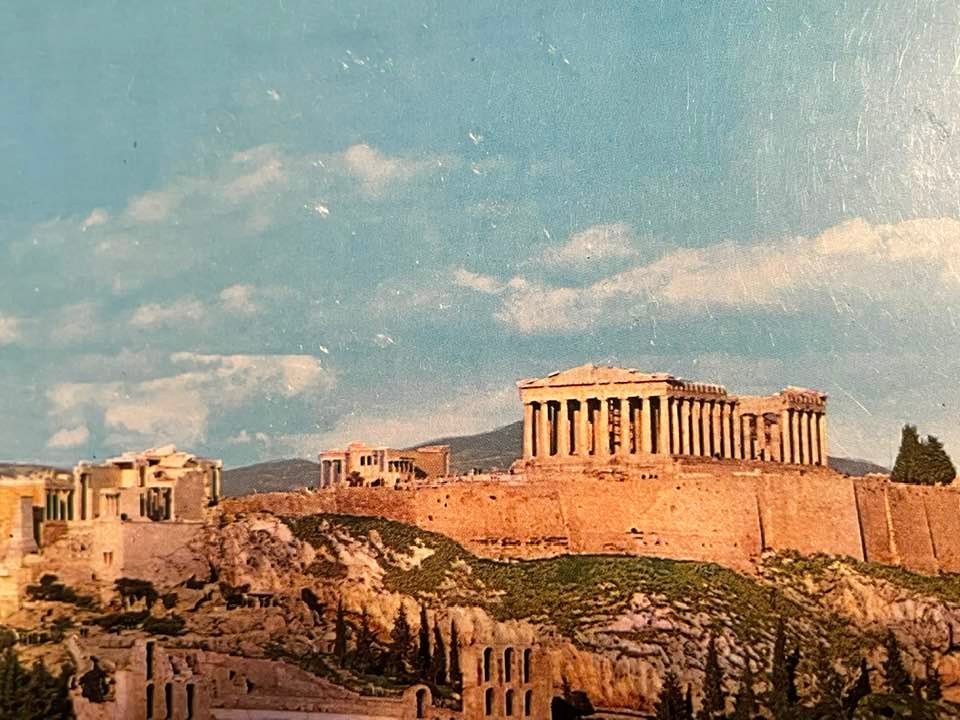MARCH 8, 2022 – Two years before, I’d approached Athens from Italy via Corfu. That sojourn had been part of a two-week mini-odyssey to Europe—my first trip abroad. My sister Jenny and I had flown Icelandair to Luxembourg, and using Eurail Passes—immensely popular among young American travelers—we’d journeyed to Sweden to visit relatives. By North American standards, southern Sweden was tantalizingly close to . . . Switzerland, and as an avid skier, I had to experience the Alps. Switzerland, bordered Italy, where a close Bowdoin friend was overseer of an Etruscan archeological dig. Tuscany was a train ride away from Brindisi, springboard to Corfu, and once on Corfu, I was within reach of Athens—and many highlights of Professor Beam’s course on ancient art and architecture.
With my Eurail Pass, I could go back to ancient times. My Eurail map, so crisp on our way to Sweden, was in tatters by the time I reached Greece—given how much I’d unfolded and folded it. I felt like a supreme adventurer headed for the edge of Western Civilization to re-discover its origins.
Jenny accompanied me to Interlaken, Switzerland, then split for Luxembourg and her flight home. I ventured on, surprising Dad, especially, when he was informed. He was steeped in the art, architecture, and history of the Golden Age of Greece, but he was also very Swedish and couldn’t grasp how my “visit with relatives in Sweden” could become a reenactment of Lord Elgin’s expeditions to the Acropolis.
At the time, Athens (and later, Delphi) did seem exotic. The ancient classic ruins—white marble reflecting ungodly summer heat—and food and music, plus the outgoing personalities of modern Greeks, contrasted starkly with the herring and cool reserve of Sweden. I felt much nearer to the Levant than to the continent on which I stood.
Two years later, Greece formed a sharp contrast with Egypt and India, not Sweden and Switzerland. As I described in a letter home, “Greece seems so clean, modern, quiet, and civilized after India, Kashmir, and Egypt. Yet, according to my recollections [from 1979], Greece was a loud, dusty (if not actually dirty) contrast to the order of Northern Europe. Perhaps Greece has changed, but I don’t think so. Moreover, for the first time in three months, I met Northern Europeans and Americans en masse. These encounters have only intensified the culture shock. The Americans, especially, seem so tame and naive.”
I then mentioned an encounter with a recent graduate of Trinity College (Hartford, CT). He’d just arrived from New York, eager to sample the exotic sun of Greece—and meet (he’d been told), Northern European young women on holiday. But for him, Greece was too exotic. I remember his impressions of what he was sure was a Third World country. “Talk about different!” he said. I nodded in complete agreement: starting with the (potable) tap water that was served at the sidewalk café where we sat, Greece was very different—from the lands I’d been exploring for two months.
(Remember to subscribe to this blog and receive notifications of new posts by email.)
© 2022 by Eric Nilsson
